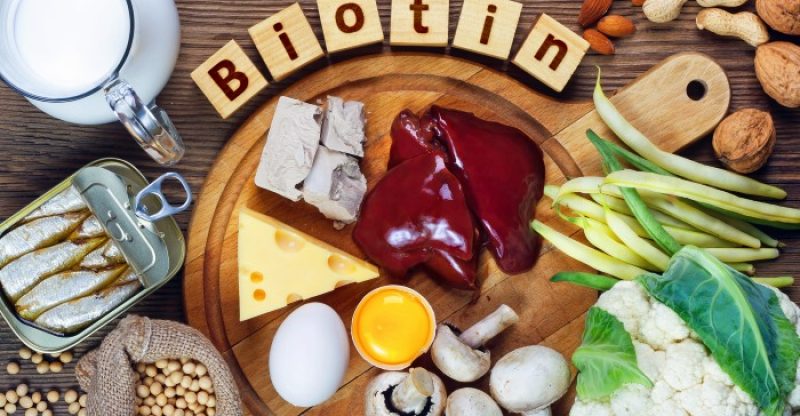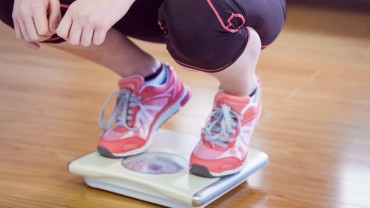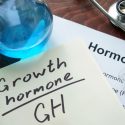11 Science-Backed Benefits of Biotin (Vitamin B7)
What is Biotin
Many people do not realize how important Biotin is to their overall health, because it seems like a small and insignificant vitamin.
However, it is important to know about Biotin and how it can affect your body, to keep from experiencing the effects that a deficiency can have.
There are many hereditary medical conditions and diseases that can be helped by taking biotin; below is included all the information that you will need to understand Biotin and how to control its intake to make sure you and your loved ones do not suffer from any of these easily avoidable issues.
The first step in being able to prevent Biotin deficiency is by understanding the question, “what is Biotin,” and how it affects the body.
Biotin, or Vitamin B7, is classified as a coenzyme of carboxylase enzymes, and it is essential for development and growth in all organisms.
It is involved in the metabolism of carbohydrates, fatty acids, and amino acids.
Unlike other vitamins, Vitamin B7 is not produced naturally by the body.
Therefore, you need to get it from alternative sources.
Biotin has been proven to help with many health factors like DNA stability, neurological functions, and skin, hair, and nail health, as well as steadying blood sugar levels.
It is rare that someone has a Vitamin B7 deficiency, but if it happens, it can be dangerous to your health.
A few of the different negative health effects that this type of deficiency can lead to if untreated include minor ones like hair loss, skin rash, and muscle pain, to more severe effects like anemia, growth retardation, and even neurological dysfunction.
There are groups that are classified as being at higher risk for Vitamin B7 deficiency; a few of those groups include pregnant women, smokers, those with inflammatory bowel disease, and alcoholics.
Again, just being a part of these groups does not mean that you will experience this type of deficiency, but it does increase the likelihood of it happening.
Signs of Biotin Deficiency
Although having a deficiency of Biotin is extremely rare, that does not mean that it cannot happen to you or someone you love.
No one is immune to this type of deficiency, and it is imperative to know your body and what your risk factors are to be able to counter them in time.
Generally, there are three situations where this type of deficiency can appear:
- consumption of raw egg whites for a prolonged period,
- prolonging parenteral feeding without any sort of biotin supplementation, and
- feeding infants with elemental formulas that do not contain Biotin.
There are several signs that can tip you off if you are becoming deficient, and for those with an overt lack of biotin, you may experience things like a scaly red rash around the mouth, genitals, eyes, and nose.
Another minor sign of this type of deficiency is also alopecia, or loss of hair.
There are also some neurological symptoms that you might experience.
Some of these symptoms are tingling and numbness in the extremities, lethargy, seizures, hallucinations, depression, and ataxia.
It is possible to experience a hereditary disorder of biotin metabolism, which basically is an extreme case that can cause the more severe symptoms like seizures and an impaired immune system.
This is extremely dangerous, because it can cause you to be more susceptible to fungal and bacterial infections than those who have enough Biotin in their diet and system.
According to some investigators, the facial rash and unusual facial fat distribution can also be signs of a deficiency of Biotin.
However, if you ever don’t know, it is best to contact your doctor to make sure there is not some other issue, and they just are the signs of a Vitamin B7 deficiency.
Health Benefits of Vitamin B7
Just as with most types of Vitamin B, Vitamin B7 consumption is important to ensure that one remains healthy.
Everyone with a deficiency in this vitamin may experience one or multiple symptoms.
There has been some research conducted to find out exactly what benefits Biotin provides, but there is still a lot that needs to be done to find out what it does for the body specifically.
However, below, you will find several benefits from making sure that you keep your Biotin levels properly managed to ensure that you remain healthy.
Even if you are not currently experiencing some of the issues described below, it is always good to know what to look out for to keep yourself from having a deficiency, which can lead to health problems.
Helps Against Cognitive Decline
Vitamin B7 has proven to help with diverse cognitive diseases like dementia and Alzheimer’s.
Biotin is needed for myelin sheath formation, which is a fatty substance that is used to surround the nerves and helps to facilitate their impulse conduction.
An autoimmune disorder that is characterized by the loss of myelin damage is multiple sclerosis.(1)
Since Biotin has been proposed to be effective in fatty acid synthesis and energy production, doctors and scientists think that it could help in reversing or limiting multiple sclerosis-related impairments.
With disorders like Alzheimer’s and dementia, there are a lot of excellent benefits that make keeping track of biotin levels essential to staying healthy.
Although it will not keep the effects of these diseases at bay forever, or will not guarantee someone will not get them at all, it has been proven that the effects of Biotin can help with slowing down the disease process.
There are several diverse types of diseases that can affect your cognitive abilities, and Vitamin B7 has a primary role in helping with the nerve signaling and neurotransmitter activity affected by them.
Basically, Vitamin B7 assists with memory, and it can help with defending against hereditary disorders like Alzheimer’s disease and dementia.
Therefore, if these types of disorders run in your family, Biotin might be a good vitamin to take to prevent the likelihood of future memory degeneration.
Rebuilds Muscles and Tissues
Biotin has been proven to help repair and build muscles, and grow and maintain tissues, in the body.
Therefore, if you are an active athlete, or have a job that requires excessive amounts of muscle use, Vitamin B7 can help to maintain your muscles and keep them from getting damaged.
Inflammation in the joints and muscles is one of the biggest causes of muscle pain and difficulty in movement.
Since biotin is known for addressing this issue, it is a simple and easy remedy for if you experience this problem on a regular basis due to your daily activities.
This does not mean that Biotin is a miracle cure.
With muscle pain, it can be difficult to pinpoint what will help and what not.
However, this is something to discuss with your doctor if the pain is consistent, due to your daily activities.(2)
You can easily increase your intake by changing what you eat or by taking a vitamin B7 supplement.
What you do will depend on your preference, but a good characteristic of the foods that have biotin in them are that they are commonly eaten, and there are many ways to enjoy them without having to take extra pills or supplements.
Helps with Inflammation
According to research conducted on human white blood cells and mouse models, having a deficiency in Vitamin B7 can aggravate various inflammatory conditions, but it might also increase the production of pro-inflammatory cytokines.
In these models, a biotin supplementation was used, and the result was that the production of pro-inflammatory cytokines decreased.
It also showed that allergic inflammation improved.
Based on these results, it has been suggested that more research needs to be done, because biotin might be able to be used as a potential therapy against various allergic and inflammatory diseases in human beings.(3)
The theory behind this is because one of the results activated in someone with a deficiency of Vitamin B7 was that there was a decrease in Nf-Kb activity, which is a major cause of these types of disorders.
Improves Immune System
It has been proven that Biotin is needed in adults and infants for their white blood cell development.
This is just one of the many reasons that its deficiency has been linked to having an impaired immune function, which makes you more susceptible to the risk of infection.
Biotin helps to increase the body’s production of Th1 cytokines, which are essential in fighting off both viral and bacterial infections.
When you experience a deficiency in Vitamin B7, you may experience a decreased rate of cellular proliferation.
This can lead to an adverse effect on your immune system function.
It is believed that 1 in every 123 people may fall into the classification of being biotinidase deficient.(4)
Not being able to recycle biotin has been associated with chronic vaginal candidiasis, and therefore, this condition may be responsive to and treatable with the use of a Vitamin B7 supplement.
Protects Against Certain Types of Cancer
DNA-binding proteins, like histones, are used to help package and fold DNA into chromatin; biotin covalently binds to histones.
When in need of DNA repair or stability, cellular proliferation, or gene silencing, biotin has placed a huge role when it is added to these histones.
If your biotin levels drop, it could cause you to have inadequate histone biotinylation.
This can increase the risk of cancer, because of abnormal gene expression.
There have been a few studies conducted that indicate that having higher levels of biotin can be found to increase genetic damage and genomic instability; based on these studies, it has been suggested that some effects might actually be dose-dependent.
However, it is apparent that the link between cancer risk and histone biotinylation should be investigated further to get more definitive proof.(5)
Helps to Maintain Healthy Nails, Hair, and Skin
Biotin benefits the body by helping to maintain tissues like healthy nails, skin, and hair.
Therefore, when you are experiencing a deficiency of Vitamin B7, you may experience problems like dry, irritated skin, brittle or thinning hair, or thinning of nails.
Due to this, there are a lot of beauty products like face creams that include Biotin as an ingredient.
However, it is still more effective to use a source that is digested, as from food sources.
There have been studies that have used biotin to help treat weak nails and hair.
Believe it or not, this was first discovered when horses were treated with biotin when their hooves were getting brittle and cracking easily.
Over the years, vitamin B7 has been able also to help with protecting your skin from problems like acne, rashes, severe dryness, and even fungal infections.(6)
Helps to Support a Healthy Metabolism
Biotin has been linked to the gene expressions that are critical for carrying out the many functions of metabolism.
Like other B vitamins, Vitamin B7 is required to convert the food people eat into usable energy that is needed to have a healthy metabolism.
How does biotin do this? Vitamin B7 can help with metabolism in several ways.
First, it is used to convert the body’s fuel, i.e. carbohydrates and other sugar sources, into glucose that can be used for energy.
Vitamin B7 also can activate fatty acids from foods that contain lots of fat, like animal and oil fats.
Finally, Biotin helps the body use different amino acids broken down from the proteins the body takes in.
To experience healthy and normal metabolic activity, the body must be able to turn the macronutrients from food eaten into energy.(7)
Some of the symptoms of a sluggish metabolism include symptoms like fatigue, low energy levels, digestive problems, poor mood, weight gain, and possibly the development of diabetes.
Helps with Type 2 Diabetes
It is known that Biotin combined with chromium help to lower a diabetic’s blood sugar.
This is extremely important, especially when people are classified as a Type 2 diabetic, which is more difficult to control.
Some people do not respond well to prescription medicines that are meant to help control blood glucose levels, and by adding a daily supplement or source of Vitamin B7 to their diet, they could experience better levels.
The way biotin influences these levels is by facilitating the activity of insulin, which is crucial for the body to keep its blood sugar levels balanced and controlled.
When insulin response becomes an issue, your body’s blood sugar levels can vary widely and dangerously, and this is generally what determines someone to be classified as a type 2 diabetic or at risk for diabetes. It can also cause other metabolic syndromes and weight gain.(8)
Simply put, Biotin helps to decrease the enzymes that are produced by the liver, and this in turn helps to keep as much sugar from being released into the bloodstream.
Deficiency of Vitamin B7 has been linked to a decrease in utilization of glucose, and impaired glucose tolerance.
Therefore, it is possible to help combat symptoms of diabetes in existing cases, and even the nerve pain that can be experienced by diabetics.
Prevents Major Birth Defects
A lot of people do not ask the question, “What is biotin?”, but it is a question any pregnant or breastfeeding woman should pay attention to.
A growing fetus requires a lot of biotin to grow correctly, and since it gets its nutrients from its mother, if you do not have a healthy intake of Vitamin B7, your biotin will be used by the fetus, which can cause you to develop a deficiency.
Although it hasn’t been proven, it is suspected by doctors and scientists that having low biotin while pregnant might cause birth defects like limb abnormalities and even cleft palate.
Studies have shown that lower levels of biotin might delay or even halt the growth of the embryonic palate.
There has not been any definitive evidence that establishes that this type of deficiency can cause these defects, but there is enough to prove that there needs to be more research to get a more definitive answer.
Lowers the Risk of Heart Disease
A normal metabolism is imperative to help maintain blood vessel and heart health, and biotin can assist with this.
If you are at high risk for heart disease, it is possible to combine Vitamin B7 with a substance like chromium to help increase your high-density lipoprotein (HDL).
This is especially useful and helpful in patients that are diabetic who are at higher risk for heart disease.
If you have elevated triglyceride levels, then a healthy dose of biotin has proven to help lower these levels to be more manageable and safer.
A few of the different heart diseases that biotin can help to combat are heart attacks, inflammation, stroke, and atherosclerosis.
This doesn’t mean that taking biotin will guarantee you will not experience any of these, but it is an excellent way to reduce your chances.
Helps with Thyroid and Adrenal Functions
B Vitamins have proven to be effective in defending against illnesses like adrenal fatigue, and helping to promote proper thyroid activity.
Adrenal and thyroid glands are classified as “master” glands.
It is their job to be responsible for regulating body states, like pain perception, sleep, energy, mood, and hunger.(9)
Therefore, if you are experiencing any symptoms like trouble sleeping, fatigue, and weight gain or loss, these could be signs that your biotin levels and other vitamin B levels are not stable.
Your doctor could prescribe something as simple as adding more biotin to your diet, which will help with these symptoms of this deficiency.
These might see like minor symptoms to you, but overall, they can really affect your overall health, and it is an easy issue to fix with just a little effort.
Best Biotin Foods
When managing a Biotin deficiency, or trying to prevent one, there are 8 different sources that you can use to up your Vitamin B7 count.
The three main sources of controlling Vitamin B7 are bacterial synthesis, supplements, and food, and the only naturally-occurring biotin source is from food.
The biotin that can be found in food sources is also known as “d-biotin,” and it is the best and most-recommended way of keeping Biotin levels under control.
Although it has been proven that over 51 different foods contain Biotin, it is not listed on their labels, because their levels vary widely and authorities like the USDA don’t feel that it needs to be listed.
However, after testing, there are a few foods that have more Biotin in them than others.
Luckily, the 9 best food sources of biotin are common food items.
Below, you’ll find a list of the 9 best foods that contain Biotin, and how many milligrams of it they have:
- Cauliflower – 1 cup has .2-2 milligrams
- Liver – 3 cooked ounces has 27-35 milligrams
- Whole Grain Bread – 1 slice has .2-6 milligrams
- Salmon – 3 ounces has 4-5 milligrams
- Eggs – 1 whole egg has 13-25 milligrams
- Raspberries – 1 cup has .2-2 milligrams
- Yeast – 7 grams, which is about 1 tablespoon, has 1.4-14 milligrams
- Avocado – 1 whole has 2-6 milligrams
- Cheese (best source is organic goat cheese) – 1 ounce has .4-2 milligrams
As stated, there are a lot more foods that can provide Vitamin B7, but the 9 listed above will give you the best chance to keep your Biotin levels up and diminish the chance of having a deficiency.
A good feature of biotin is that it is easy to add the foods needed to your diet to get a heathy intake.
There are thousands of recipes that you can make even just with the 9 food sources above that will allow you to keep your Vitamin B7 levels on track.
Biotin Precautions
Although this type of deficiency is rare, there are several risk factors that people need to consider when they are at risk.
A precaution that you can take is increasing your daily biotin intake.
Below are a few of the risks that can cause someone to have a deficiency in their Biotin levels.
Just because you may have one or more of these risk factors does not mean that you will experience symptoms, but it does make it more likely.
Therefore, if you have any questions or feel as though you are experiencing any of the symptoms that come with this deficiency, it is best to contact and speak with your personal doctor to make sure that this could be the actual cause.
Biotin Risks
One of the biggest risks to healthy biotin levels is smoking.
Even with a healthy intake of Vitamin B7, smoking prevents your system from uptake.
However, smoking is not the only risk factor that you have to be aware of.
When pregnant, it is more likely you will experience a decline in your biotin levels.
Even during a normal pregnancy, women can experience a decline in their biotin levels, which means they need to get a healthy intake of biotin to keep their levels up and make sure that their baby does not experience deficiency upon birth.
Anyone that has a liver disease is also at high risk of having a biotin deficiency.
Cirrhosis has been proven to decrease biotin levels, which means those with the disease need to increase their intake, whether via food sources or other approved supplementation.
Lastly, those who are required to take anticonvulsant medications are also at a higher risk of low biotin levels.
Something in their medications cause their biotin levels to drop naturally.
Biotin Dosing
When it comes to Vitamin B7 intake, scientists and doctors are still unsure of the daily requirements for individuals.
Therefore, they have not been able to establish a recommended daily allowance to improve biotin levels, as they have been with many other vitamins and supplements.
However, they do acknowledge that an increase in biotin levels is a plus during a pregnancy.
This will help to keep the mother and baby from experiencing a deficiency.
For the average healthy adult, it is predicted that they need approximately 30 micrograms daily.
In the list below you can find the adequate intake that scientists have come up with, at least their best guess, for individual age groups.
However, it is important to know that these are just recommendations.
As said, there still needs to be more research done to confirm these intake recommendations.
The following are merely a guideline:
- Infants 0-6 Months Old – 5 micrograms a day
- Infants 7-12 Months Old – 6 micrograms a day
- Children 1-3 Years Old – 8 micrograms a day
- Children 4-8 Years Old – 12 micrograms a day
- Children 9-13 Years Old – 20 micrograms a day
- Adolescents 14-18 Years Old – 25 micrograms a day
- Adults 19 Years Old and Older – 30 micrograms a day
- Women who are pregnant – 30 micrograms a day
- Women who are breastfeeding – 35 micrograms a day
Biotin Interactions
There are a lot of different interactions that biotin can have, but the two main ones include those with Vitamin B5 and with anticonvulsant medications.
Therefore, it is imperative to be cautious if you are taking any sort of pantothenic acid or Vitamin B5, so as to avoid a vitamin imbalance.
If you are taking anticonvulsant medications or undergoing any sort of anticonvulsant treatments, it is best to consult a doctor to make sure that your biotin intake will not act against your medications.
These medications can cause you to experience a deficiency in Biotin levels, but in the end, your doctor should be able to assist you in making sure that you are safe.
Plus, there is not a lot of knowledge on how antimicrobial drugs react with biotin, so it is always important to take precautions.
FDA Compliance
The information on this website has not been evaluated by the Food & Drug Administration or any other medical body. We do not aim to diagnose, treat, cure or prevent any illness or disease. Information is shared for educational purposes only. You must consult your doctor before acting on any content on this website, especially if you are pregnant, nursing, taking medication, or have a medical condition.
HOW WOULD YOU RATE THIS ARTICLE?






